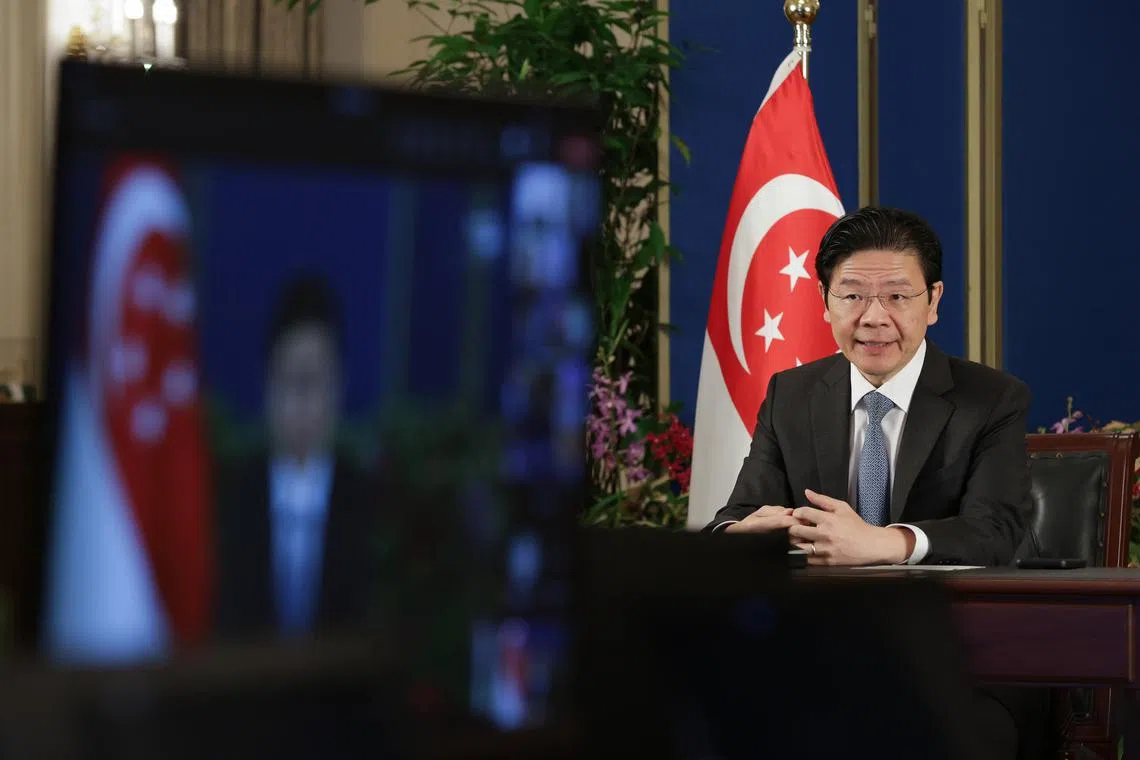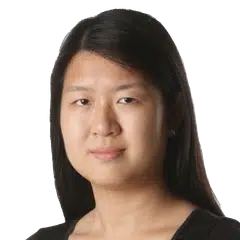AI regulations should be sensible, adaptive and cooperative: PM Wong
Sign up now: Get ST's newsletters delivered to your inbox

Prime Minister Lawrence Wong attends a virtual leaders’ meeting of the AI Seoul Summit on May 21.
PHOTO: MCI
SINGAPORE – To harness the benefits of artificial intelligence (AI) while reducing harm to humanity, sensible regulatory parameters must be put in place that protect people without stifling innovation, said Prime Minister Lawrence Wong.
In Singapore’s context, the authorities try to strike this balance with laws that protect personal data while tackling specific online criminal acts where AI might be used, PM Wong said at a virtual leaders’ meeting of the AI Seoul Summit on May 21.
“Broadly classifying all generative AI as ‘high-risk’, or regulating AI systems on the condition that they must not cause any harm, can be overly restrictive and will inevitably lead to less innovation,” he said.
Yet rules also have to be updated over time based on how AI is being used, which means monitoring how usage evolves, he added.
For instance, the AI models used in finance for risk management and fraud detection will not always be perfect, but financial regulators understand and can deal with the risks, said PM Wong.
But the risk is much higher, even catastrophic, if AI is embedded in military weapon systems or used to develop fully autonomous models, which run on their own without human input, he said.
That is why international cooperation is essential in this endeavour, as all countries have a shared interest in the development and use of AI, he added.
“We will need to consider carefully as a global community, the norms and guard rails needed to ensure such technology is used safely and responsibly,” said PM Wong, who joined the summit at the invitation of South Korean President Yoon Suk-yeol and British Prime Minister Rishi Sunak.
Countries can do so by pooling the resources of their research communities and encourage interoperability of national AI governance and security frameworks, he suggested.
He also hailed the May 21 agreement between 10 countries and the European Union to set up an international network of AI Safety Institutes that will work together to address shared concerns over AI.
The agreement was signed by Australia, Canada, the EU, France, Germany, Italy, Japan, Singapore, South Korea, the US and Britain.
PM Wong said that the Republic will do its part in all of these efforts by partnering with like-minded countries, and through platforms like Asean and the United Nations.
“The bottom line is that AI safety, inclusivity and innovation must progress in tandem,” he added.
The summit, held on May 21 and 22, is organised by South Korea and Britain.
Dr Janil Puthucheary, Senior Minister of State for Communications and Information as well as Health, is in Seoul representing Singapore in person at the summit and the AI Global Forum.
The Seoul summit is a continuation of Britain’s AI Safety Summit in November 2023
It has a broader scope, covering other aspects of the global AI governance framework, with three priorities: AI safety, innovation and inclusivity.
In a joint opinion article titled “Only global AI standards can stop a race to the bottom”, which was published in Britain’s i newspaper and South Korea’s JoongAng Ilbo, Mr Sunak and Mr Yoon said: “Although positive efforts have been made to shape global AI governance, significant gaps still remain.”
During the inaugural AI Safety Summit, 28 countries including the US and China had co-signed the Bletchley Declaration on collectively identifying and managing AI risks.
Senior Minister Lee Hsien Loong, who was then the Prime Minister, attended the leaders’ session of the November summit virtually and said on Facebook then: “The field of artificial intelligence is developing rapidly, transforming lives while raising deep ethical questions.”
The Republic was also represented at that summit by Communications and Information Minister Josephine Teo.



